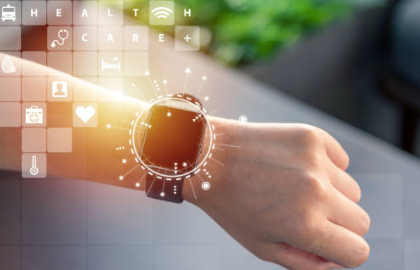Wearable technology has swiftly moved from a niche market to a mainstream phenomenon, revolutionizing how individuals monitor their health and enhance their daily lives. These innovative devices, ranging from smartwatches and fitness trackers to smart clothing and health-monitoring implants, have seamlessly integrated into our routines, offering real-time data and insights that empower users to make informed decisions about their well-being.
Monitoring Fitness and Physical Activity
One of the primary benefits of wearable technology is its ability to monitor fitness and physical activity levels accurately. Devices like fitness trackers can count steps, track distance traveled, monitor heart rate, and even analyze sleep patterns. By providing users with actionable data, these devices encourage individuals to set and achieve fitness goals, maintain an active lifestyle, and make healthier choices throughout the day.
Personalized Health Insights
Wearable devices go beyond basic fitness tracking by providing personalized health insights based on continuous data collection. Advanced sensors can measure parameters such as blood oxygen levels, skin temperature, and even electrocardiograms (ECG). This data not only helps users understand their body’s responses to different activities but also enables early detection of potential health issues, prompting timely intervention and preventive measures.
Encouraging Behavioral Changes
Behavioral change is a critical aspect of health improvement, and wearable technology plays a significant role in fostering positive habits. Features such as goal setting, progress tracking, and real-time feedback motivate users to stay active, eat better, and maintain consistent sleep patterns. Some devices use gamification techniques, rewarding users with badges or achievements for meeting milestones, which further incentivizes adherence to healthy behaviors.
Remote Health Monitoring
The integration of wearable technology with telemedicine and remote monitoring capabilities has transformed healthcare delivery. Patients can now wear devices that continuously monitor vital signs and transmit data to healthcare providers in real-time. This proactive approach enables early detection of health issues, reduces the need for frequent clinic visits, and supports more personalized and efficient medical interventions.
Enhancing Sports Performance
Athletes and sports enthusiasts benefit greatly from wearable technology, which provides detailed insights into performance metrics such as speed, endurance, and recovery. Wearable devices can track biomechanical movements, analyze technique, and measure exertion levels during training sessions. Coaches and athletes use this data to optimize training programs, prevent injuries, and enhance overall athletic performance.
Integration with Smart Health Ecosystems
Wearable technology is increasingly integrated into broader smart health ecosystems, where devices communicate with each other and with other smart devices in the home or healthcare facility. This connectivity allows for seamless data sharing and coordination of care, promoting a holistic approach to health management and facilitating personalized treatment plans based on individual health data.
Privacy and Ethical Considerations
While wearable technology offers numerous benefits, it also raises concerns about privacy, data security, and ethical implications. Users and developers alike must navigate issues such as data ownership, consent for data sharing, and safeguarding sensitive health information from breaches or misuse. Striking a balance between innovation and protecting user rights is crucial for fostering trust and maximizing the potential benefits of wearable technology.
Conclusion
In conclusion, wearable technology represents a transformative force in enhancing health and lifestyle by empowering individuals with actionable insights, personalized feedback, and remote monitoring capabilities. As these devices continue to evolve and become more sophisticated, they have the potential to revolutionize healthcare delivery, promote preventive health measures, and improve overall quality of life. Embracing wearable technology responsibly and ethically ensures that its benefits are maximized while addressing potential challenges, paving the way for a healthier and more connected future.
